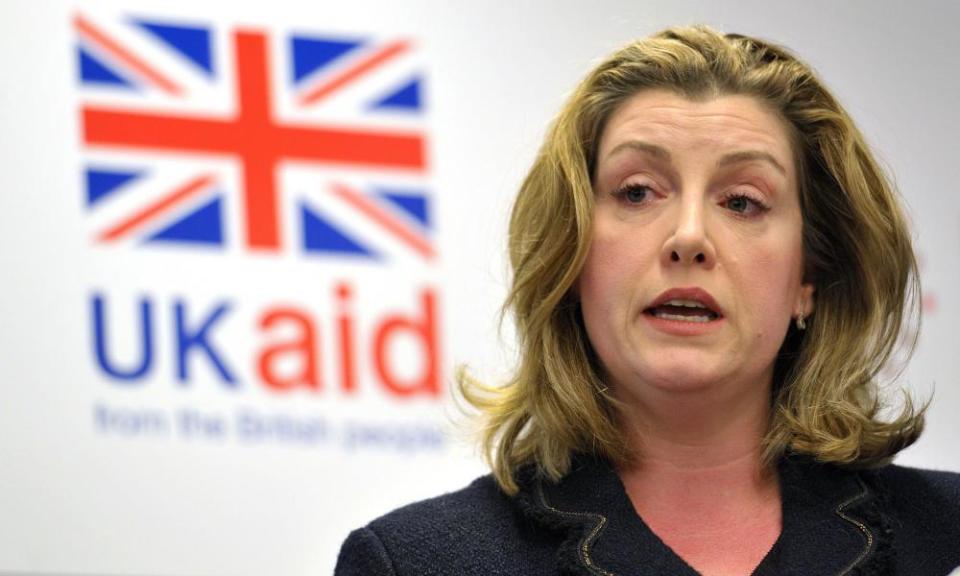The Oxfam scandal has taught us there is no reward for honest charities

Abuse thrives under two conditions: when victims are afraid to speak out, and when those in power do not listen. Oxfam have been condemned for not listening to demands that they do more to address sexual violence before the Haiti scandal hit the headlines.
However, the net of blame needs to be cast wider than NGOs. Those at the top of the aid chain – donor governments – did not listen to warnings of wrongdoing.
The risk around transparency undermines a lot of learning across the sector
Donors do not have a good record of being proactive when presented with evidence of abuse. It has emerged that the Dutch Foreign Ministry was given an internal Oxfam report in 2012 detailing the use of prostitutes by staff in Haiti. No action appears to have been taken. The Swedish International Development Cooperation Agency (SIDA), was told by one of its own officials in 2008 that Roland van Hauwermeiren, the former Oxfam employee at the centre of the Haiti allegations, left another NGO following an investigation into sexual misconduct. Rather than take action, SIDA awarded more than £500k to Oxfam in Chad, where Van Hauwermeiren was county director.
In the UK, the Department for International Development (DFID) and the Charity Commission were told by Oxfam in 2011 that staff had been sacked for sexual misconduct, with assurances that no beneficiaries were involved. Priti Patel, former international development secretary, claims that she raised the issue of sexual violence with DFID officials, only for it to be “dismissed as only a problem with UN peacekeepers”.
My research into NGO regulation has led me to ask: do government donors create the impression that they will only fund organisations with glowing track records? NGOs that receive aid money are expected to complete detailed reports that assess measurable outcomes. I have interviewed several senior managers in leading NGOs who described how the pressure to demonstrate value for money drives a tick-box culture where all the incentives are to make the reports as positive as possible. Respondents felt there was very little tolerance for charities that make mistakes.
They pointed out the messy reality of aid cannot be accurately captured by the neat metrics prioritised by donors. Mistakes are bound to happen, wrong judgement calls will be made, and some staff members will exploit their positions of power. But there is fear in the sector that organisations will be punished for being “non-compliant” if they report these errors. Too many NGOs obediently fill out reports that provide an impossibly immaculate account of success. In doing so, they win the funding, and so practices of concealment are positively reinforced. This has a knock-on impact. As one NGO executive aptly put it: “the risks around transparency undermine a lot of learning across the sector”.
Government donors should recognise organisations that admit to failures are probably more trustworthy than those which present whitewashed accounts of their achievements. NGOs that disclose wrongdoing should be commended, providing they make a genuine attempt to rectify errors and improve practices. As Winnie Byanyima, executive director of Oxfam, points out, the number of reported cases of abuse in Oxfam has recently risen because it has adopted a stronger safeguarding policy.
Oxfam is widely recognised as having the best policies on sexual violence in the sector. But it now faces losing funding from DFID, the EU and SIDA. The danger of this donor reaction to the Oxfam scandal is that other NGOs with less robust procedures will shy away from being open about abuse. Managers will judge the consequences of transparency too grave.
NGOs looking to tackle this issue have another problem: a public that is highly sceptical of overheads. The running costs of charities have long been associated with waste, with many arguing the highest possible proportion of donations should be spent on “the cause”. But investing in robust whistleblowing and safeguarding procedures doesn’t come cheap. Organisations that are serious about stamping out abuse will, for example, need to increase their capacity to undertake rigorous background checks on potential and current employees.
The understandable furore over sexual abuse in the sector has shown that individual and government donors claim to value NGOs that are accountable. If that is true, they will have to brace themselves to hear tales of abuse and mismanagement because disclosure is essential for transparency. The public needs to hear it has unreasonable expectations about what it takes to prioritise safeguarding.
NGOs must acknowledge they have inflated these expectations in the past by being too timid to acknowledge bad news stories. And governments should recognise their failures to ask searching questions about abuse – even when directly presented with the evidence. As a sector, we need a more mature debate about how to encourage a culture of transparency and learning – something that has been missing in the rush to vilify Oxfam.
• Angela Crack is a senior lecturer in international relations at the University of Portsmouth.
Talk to us on Twitter via @Gdnvoluntary and join our community for your free monthly Guardian Voluntary Sector newsletter, with analysis and opinion sent direct to you on the first Thursday of the month
Looking for a role in the not-for-profit sector, or need to recruit staff? Take a look at Guardian Jobs

 Yahoo News
Yahoo News 